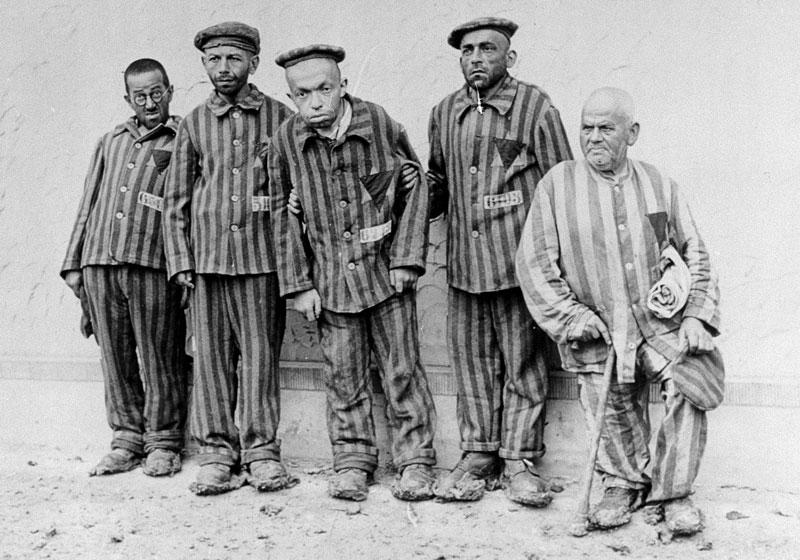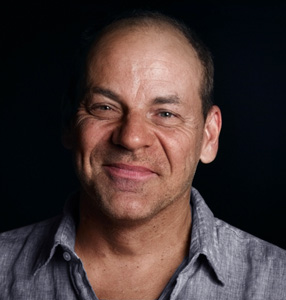Occurring all across Western culture is a deep reckoning with the historical treatment of people of African descent. And assisting mightily in this process is the concept of unlearning. Without unlearning, we now know that we will continue to sanitize and apologize for our ancestors. Unlearning represents not just more extensive research on the subject, it’s a necessity to the most basic learning by putting a separate lens on why our prior teachers needed to lie about the legacy of slavery, Tulsa, Jim Crow, and George Floyd.

Five handicapped Jewish prisoners, photographed for propaganda purposes, who arrived in Buchenwald, Germany after Kristallnacht.
Credit: Wikimedia Commons
People with disabilities/disabled people need to cheer, support, and also take notes. When I mentioned “society’s insecure demand to be able to ‘exclude,’” in Part 1 of this series, “Let’s Change How We Define ‘Disability,” I may not have been as overreactive as you thought.
Cut to the chase: Ancient Greeks took us into the woods and chopped us up. The Spanish Inquisition of the Catholic Church drowned or lit us on fire. Europeans from the Middle Ages throughout the first half of the twentieth century used us for scientific experiments without permission or anesthesia. The Nazi “final solution” included us. Until the 1972 discoveries within Staten Island’s “Willowbrook” facility, US residential institutions neglected our nutrition, our sanitary needs, allowed us to often die from treatable diseases, and repeatedly raped (mostly) female residents.
Globally, it is not hard to discover pockets of such eugenics. As late as 2010, California’s prisons were still sterilizing (what were almost exclusively non-white) female inmates in exchange for early release.
All throughout this soul-crushing history, families were encouraged not to love their disabled children as, for centuries, under the “religious model” of disability, we were interpreted as punishments from God for the perceived sins of the parents.
Did we improve that much through the centuries and into the 1960s-1970s, when parents of autistic children were told, “Put him in a home and forget you ever had him?”
There are many “models” of or ways you can look at disability. There’s the social model, the economic model, the aforementioned religious model, and the medical model. And under the medical (or deficit) model of disability, we are defective. Disability itself is perceived as a failure, and it is this model that, in particular, has been used to support the aforementioned horrors. Even the American Psychological Association, normally a haven for cold-thinking (if not heartless) intellects, writes, “The medical model suggests that professionals with specialized training are the ‘experts’ in disability. Persons with disability are expected to follow the advice of these ‘experts.’” And lastly, many current autism institutions that profess love and respect for their spectrum “colleagues” can fool you (i.e., we want to learn respectful language from you so that we can learn how to hide the fact that we’re crappy people). I resigned within hours from Drexel University’s Autism Research Institute this past January when their head, Diana Robins, Publicly admitted and defended (almost as a throwaway line) their use of the Medical Model of Disability.
But it is only here, in this figurative, nasty space we call “the history of disabilities,” where the combining of people with all these hundreds of diagnoses under one definition…makes sense or has any leitmotif… People with disabilities are all and only united as a grouping for whom people without disabilities find either too uncomfortable to accommodate, unworthy of their own opinions regarding their worth, if not incapable of humanity.
And as in slavery, our ancestors who did not have disabilities, had little if any objection to these horrors.
The horrible attitudes haven’t gone anywhere. We just now have laws that prevent their owners from pursuing those instincts to their full satisfaction.
Stay tuned for “What I’d Like to See Change in the Disability World Over the Next 50 Years – Part 3: Change Our Culture.”
Michael John Carley is the Facilitator of the “Connections” program at New York University for their worldwide autistic students, and he also has a private, Peer Mentoring practice. In the past, he was the Founder of GRASP, a school consultant, and the author of “Asperger’s From the Inside-Out” (Penguin/Perigee 2008), “Unemployed on the Autism Spectrum,” (Jessica Kingsley Publishers 2016), “The Book of Happy, Positive, and Confident Sex for Adults on the Autism Spectrum…and Beyond!,” (Neurodiversity Press 2021, where he recently became the Editor-in-Chief), and dozens of published articles. His many other current posts include being the Neurodiversity and Leadership Advisor for the League School for Autism, and he is Core Faculty for Stony Brook University’s LEND program. For more information on Michael John or to subscribe to his free newsletter, you can go to www.michaeljohncarley.com.
Articles in This 3-Part Series
- What I’d Like to See Change in the Disability World Over the Next 50 Years – Part 1: Let’s Change How We Define “Disability”
- What I’d Like to See Change in the Disability World Over the Next 50 Years – Part 2: Know and Teach the REAL History
- What I’d Like to See Change in the Disability World Over the Next 50 Years – Part 3: REAL Culture Change





